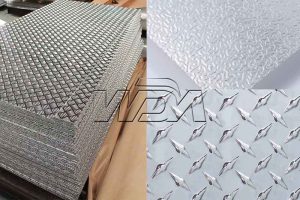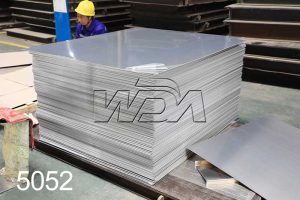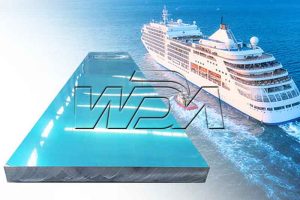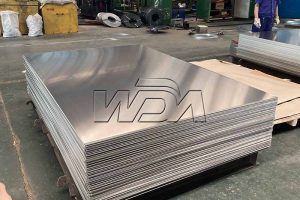Introduction
When it comes to selecting the right aluminium alloy for your project, considerations such as strength, corrosion resistance, and weldability are paramount. In this article, we delve into the differences between two popular alloys: 5052 and 5083. By exploring their unique characteristics and applications, we aim to help you make an informed decision and optimize the success of your project.

5052 Aluminium
5052 aluminium is a widely used alloy known for its excellent corrosion resistance, high strength, and good formability. It is part of the 5xxx series of aluminium alloys, which are non-heat-treatable. This makes 5052 a favorable choice for applications that require good workability, such as marine components, transportation panels, and architectural structures.
The alloy’s key properties include its moderate to high strength, exceptional resistance to saltwater corrosion, and superior weldability. Furthermore, 5052 exhibits excellent fatigue strength and has good thermal and electrical conductivity. These attributes make it an excellent choice for outdoor applications and structural components subject to harsh environments.
5083 Aluminium
5083 aluminium belongs to the 5xxx series as well, but it has several distinct properties compared to 5052. Notably, it is renowned for its exceptional resistance to marine environments, making it an ideal choice for boat hulls, offshore structures, and other marine applications. 5083 also offers excellent weldability and retains its strength in extreme temperatures.
The alloy’s main advantage lies in its significantly higher strength compared to 5052 aluminium. This increased strength, combined with excellent corrosion resistance, makes 5083 suitable for applications where structural integrity is critical. Additionally, its low density contributes to lightweight construction, offering advantages in aerospace, transportation, and military applications.
Choosing the Right Alloy
When deciding between 5052 and 5083 aluminium, it’s essential to consider the specific requirements of your project. If you prioritize formability, weldability, and moderate strength, 5052 is an excellent choice. Its corrosion resistance also makes it ideal for outdoor applications.
On the other hand, if your project demands superior strength and exceptional resistance to corrosive environments, 5083 is the preferred alloy. While 5083 may be more expensive, its unmatched performance in harsh conditions justifies the investment in certain applications.
Conclusion
In conclusion, both 5052 and 5083 aluminium alloys offer unique characteristics suited for various applications. While 5052 shines in formability, moderate strength, and general corrosion resistance, 5083 stands out with its exceptional strength and marine-grade corrosion resistance. Consider your project requirements carefully to determine which alloy will deliver the best results.
Remember, partnering with a trusted aluminium supplier and consulting with industry professionals will ensure that you make an informed decision tailored to your specific needs. If you still do not know which alloy to choose, contact me, I can recommond the right one according to your requirements. Just email me wandaaluminumsheet@gmail.com or whatsapp me +8613619844700.




